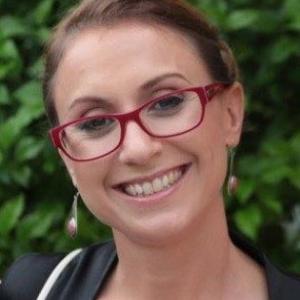Providing evidence on the crimes of Operation Condor
Departmental Lecturer Francesca Lessa has provided expertise and resources that are proving crucial in efforts to bring to justice those responsible for Operation Condor, a campaign of persecution of opponents in exile by authoritarian regimes in Latin America in the 1970s.
Operation Condor saw dictatorships in countries across South America conspire to kidnap and assassinate political opponents in each other’s territories. It was established by Argentina, Bolivia, Chile, Paraguay, and Uruguay in 1975; Brazil, Peru and Ecuador subsequently joined.
Dr Lessa has spent more than 10 years researching these crimes and subsequent efforts to bring those responsible to justice, working with the help of a network of South American collaborators, including human rights activists, judicial professionals, academics, and policy-makers.
Even after democratisation in South America, the abuses of Operation Condor were difficult to investigate, in part because they involved more than one state. This left families not knowing what had happened to loved ones and without justice or accountability for disappearances and illegal killings.
“It was a Pandora’s box which governments did not want to open,” Dr Lessa said. “Countries were able to pass the blame and say ‘that happened in Argentina or Brazil or Paraguay, it’s nothing to do with us in Uruguay or Chile’ – even though they had been deeply involved. Documents were hard to find and there was a culture of secrecy and impunity.”
Dr Lessa began collecting information about cases, interviewing victims, collating information from national databases, and trawling archives of government departments and NGOs. Gradually word of her work spread and people began sending her documents. It became apparent that the many people affected by Operation Condor across countries had a lot to share with each other, leading Dr Lessa to organise a series of knowledge exchange workshops.
Three workshops in Chile (2015), Uruguay (2016), and Argentina (2018), coordinated with local partners, brought together over 200 South American academics, lawyers, judges, prosecutors, victims, human rights activists and policy-makers, creating a network of collaborators.
Dr Lessa also collated the growing body of evidence into a database which helped shape trials related to Condor. In 2019 Rome’s First Assize Appeals Court incorporated into its proceedings recently declassified documents collected by Dr Lessa; this contributed to overturning 18 acquittals and the sentencing of 24 South American defendants to life imprisonment for the murders of nearly 40 people from Italy and Uruguay
In a bid to support these efforts further, in 2022 Dr Lessa worked with colleagues to create a new, freely accessible website. The site, plancondor.org, includes archival documents, books, articles, verdicts in criminal cases, an interactive map of victims, statistical reports and documentaries. It was jointly created with input from civil society groups Sitios de Memoria and Observatorio Luz Ibarburu in Uruguay, and Londres 38 in Chile.
The site, which was officially launched during a day-long workshop in Argentina held in the Office of the Prosecutor for Crimes against Humanity, aims to raise awareness, inform policy-making and shape public debates on accountability for past crimes.
Dr Lessa’s has also given evidence as an expert witness in two cases related to Operation Condor.
The first involved a case against a former naval officer, Jorge Troccoli, related to three victims of Operation Condor heard before Rome's Third Assize Court in February 2023.
Dr Lessa gave evidence for three hours, providing historical and political context on the military coups, state terror and Operation Condor in South America. She spoke about each of the victims and the documentary evidence available to reconstruct their specific cases and illustrated the military career of the defendant at the time of the events in question.
She was also an expert witness in May 2021 in a case heard before the Inter-American Court of Human Rights relating to the disappearance of two Uruguayan political exiles and their children in Buenos Aires in 1976.
The court concluded that Argentina was responsible for the couple’s disappearance and had breached the rights of the victims’ two children to judicial protection and guarantees, as well as their right to know the truth regarding their parents’ fate and to locate their remains.
In the sentence, the Court cited a statement given by Dr Lessa several times and particularly to illustrate that Condor amounted to a system of cross-border repression of political opponents in South America; that Uruguayan nationals were the most persecuted within the framework of Operation Condor; that Argentina was the country where transnational repression of refugees operated most intensely; and that Condor’s main objective was persecuting and eliminating political opponents to the military regimes in the Southern Cone.
In a further intriguing development, an artist working to create an animation for the new plancondor website managed to locate a plane used in a secret rendition in another Operation Condor case, in which five political exiles – three Argentinians and two Uruguayans – were forced onto a flight from Asuncion to Buenos Aires.
Keen to create an accurate illustration, artist Santiago Santana Camargo searched online for reference pictures, only to find an image of what appeared to be the exact plane, complete with a Google maps pin showing its precise location at an airport in Uruguay, where it had been abandoned 15 years previously.
The team passed this discovery on to lawyers and a Uruguayan judge has since ruled that the plane must be preserved. The judge also asked the Uruguayan Air Force to carry out a report with the aim of confirming that the plane at the airport is indeed the Operation Condor aircraft.
Dr Lessa’s book about Condor, The Condor Trials: Transnational Repression and Human Rights in South America, was published in 2022 and won the 2023 Juan E Méndez Book Award for Human Rights in Latin America.

